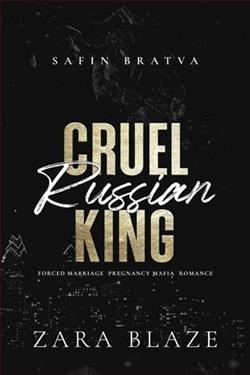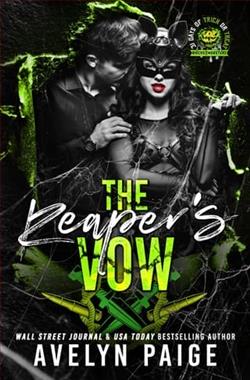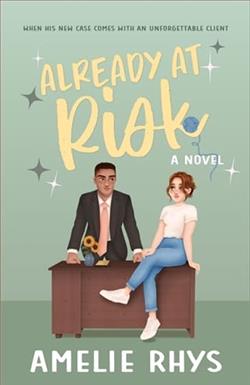Page 4 of Acquiring Ainsley
“This is about the company. And it’s critical.”
Just over two years earlier, our father had died of a massive brain aneurism. When he didn’t show up for work at Ross Publishing, the CFO of our company contacted our family’s longtime housekeeper, who found him dead on the master bathroom floor. Later, the coroner said he likely hadn’t felt any pain, and that he’d been alive one minute, then dead the next.
But knowing my father hadn’t suffered much didn’t provide me comfort at all, and I’d taken his death harder than Ashton. I’d solved this by spending as much time as possible in South Florida, a place where I was on a sort of permanent vacation. Working on the intricate details of the business was the last thing I wanted to do.
I sighed. “Fine. I’m all ears.”
“We’re not okay, Ainsley,” Ashton said. “In fact, we’re not solvent.”
I sat back in the seat and let the firm length of it support my aching spine and twitching muscles. “What do you mean, ‘not solvent?’”
“If nothing changes, the company is going to have to file for bankruptcy soon. Very soon.” The words exited Ashton’s mouth like a barrage of bullets. “We can’t keep going on like this. We’re finished. Done. It’s over.”
“What?” My voice rose, and my mind raced for answers, solutions. “No way. You must be wrong. You’ve made a mistake somewhere.”
“No, Ainsley. I assure you, this is not an error. This is our new reality.”
He couldn’t be saying that. Not now. The company was fine. Better than that, it was on a rocket ship to planet success. Just three years ago,Bloomberghad called Ross Publishing the most innovative publishing company in the US. We’d done well with ebooks, digital marketing, and social media. We had millions of subscribers to our monthly mailing lists, and our clients hit the top bestseller lists with a staggering regularity. Ross Publishing was the future of books, not the past.
Right?
“Whatever. You’re joking,” I insisted, clenching my fist and shaking my head. “Come on, out with it. I know that you’ve been mad because I said I didn’t want to reclaim a seat on the board. I just think that you’re better at—”
“I wish this was a joke,” Ashton muttered. “But it isn’t. We’re bankrupt. In fact, it’s worse than that.”
Bankruptcy? What could be worse than bankruptcy? My stomach lurched. I didn’t like my fun-loving sibling’s tone of voice. Whenever he sounded serious, I could guarantee we were in for it.
“Okay,” I whispered. “How bad is it?”
“About two months ago, I infused the company with money from the trust,” he said after a pause. “And at that point, the trust had thirty-five million left in it.”
Had?Hadthirty-five million?
My stomach twisted and turned again. I thought for a moment I might throw up the cocktails and oysters I’d just eaten during the happy hour. “How much cash did you loan the company?”
“Thirty million.” His voice broke. “We have five million left, and that’s not enough to cover all of the expenses. We’ll be out of money by the end of the quarter, Ainsley. Probably sooner than that, if we keep hemorrhaging cash. We’re finished.”
I couldn’t come close to processing what Ashton had just said. Not while sitting in the car on a side street in Palm Beach, in the middle of paradise, with dozens of palm trees overhead and the salty smell of the ocean in the air. It simply didn’t feel real. Didn’t feel possible. And it didn’t add up, either.
Where had we gone wrong? How in the hell had this happened?
“That was Dad’s money,” I finally said, as a small twinge of guilt began to plague me. “Dad’s life savings. Everything he worked for in life. All the sacrifices he made.”
“I know. You don’t have to remind me, Ainsley. I’ve never forgotten.”
Our whole lives, Ashton and I had grown up in the shadow of my father’s spectacular business story, one that could have been written in a Disney movie. Dad had inherited a small printing company in Chicago, turned it into the largest in the Midwest, and then set his sights on New York City. After first buyingNew York City Nowmagazine, he’d expanded into publishing and created the Ross Publishing conglomerate. Soon, he’d mixed and mingled with the city’s most well-heeled crowd, and met our mother, Dina DeFitz, the daughter of a Swiss count and one of Manhattan’s most celebrated socialites. Dina had given my father, George Ross, a respectability he couldn’t capture on his own. She’d helped him enter some of the city’s most exclusive circles, and she’d never let him forget that. Even after their divorce.
I sucked in a large breath. “So, you’re telling me that we’re basically destitute.” Saying this didn’t make it feel any better.
“Penniless after the end of this year.”
“Something like that.”
“How could you make a projection like that? It’s January. Anything could happen in this next year.”
“We’ve run about 300 different forecasting models. They all say the same thing.” He sighed. “And right now, we don’t have many options.”
I massaged my left temple, fighting the dull thudding of an oncoming headache. “Options? You sound so flippant about it. Clinical. Like you don’t care.”















